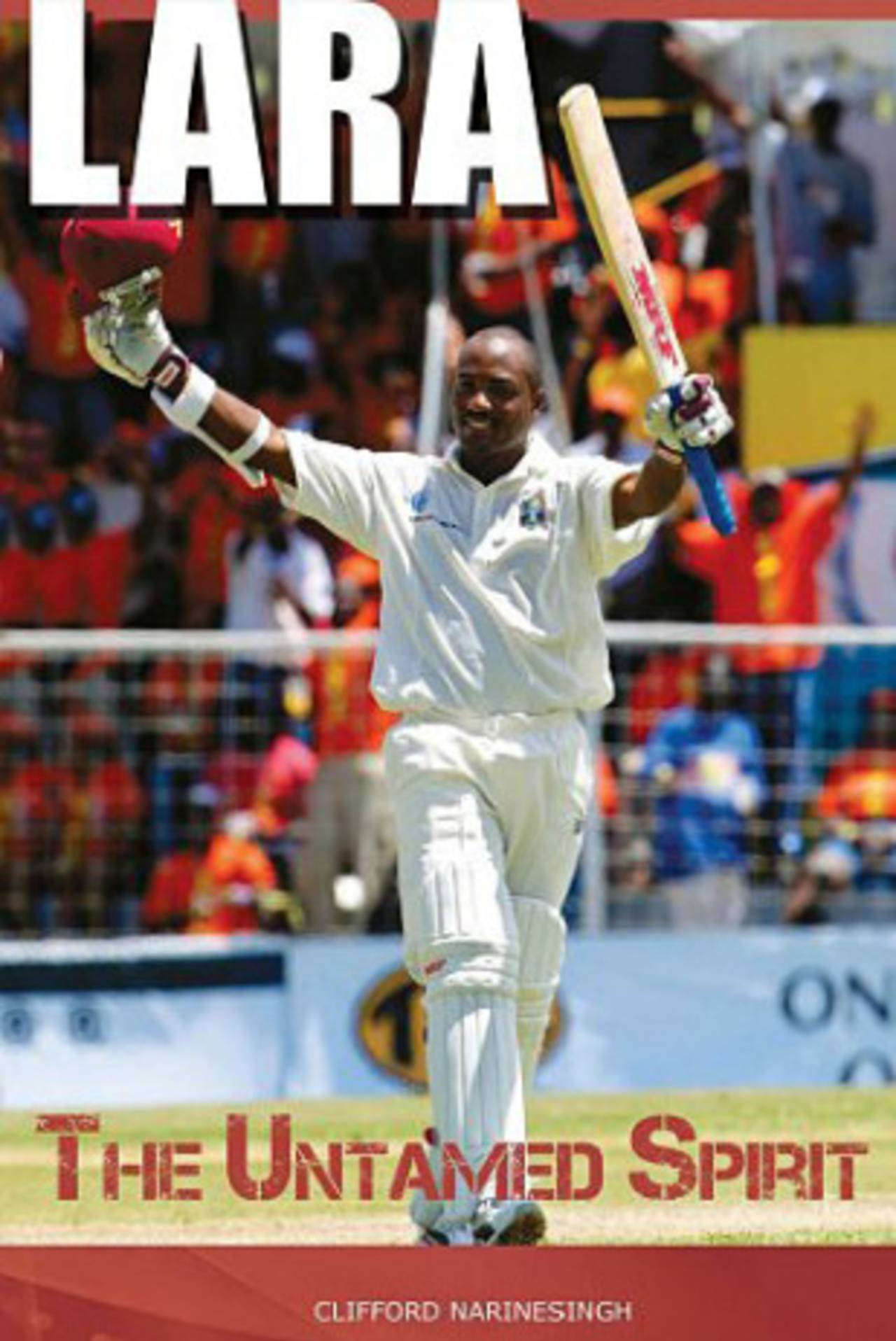Patchy chronicle of a proud career
It is neither a definitive work nor a useful one for reference. At best it's a match-by-match account
Vaneisa Baksh
30-Jan-2010

Royards Publishing Company
Understanding the strategic intent of an enterprise is useful if one has to assess it. Clifford Narinesingh remarks that there is hardly any substantial literature on West Indian cricket that recognises its role in "creating and fostering a sense of nationalism and solidarity" among its peoples. He says his book, Lara: The Untamed Spirit is a response to the requests of critics and commentators for "definitive works" and he suggests that it can also be viewed as "a response to the quest for literature which enhances the drama on the field."
He has chosen Brian Charles Lara as the subject of this work, and although this is not an "authorised biography", unlike Narinesingh's book on Sunil Gavaskar, Portrait of a Hero, it gamely attempts a sort of biographical documentation of Lara's career in West Indies cricket. Narinesingh says he tried to record Lara's pursuits without "reckless indictment or partisan loyalty", and it can be said that is what he has done. The book is simply a record of Lara's career, almost match by match, with scores, and sometimes dates, woven together mainly by liberally quoting various commentators on the game. In that regard it is hardly the seminal contribution that the foreword, written by Balan Sundaram, assures us it is.
The book could easily have found great value as a reference work, except that it doesn't quite have the rigour that would make it reliable.
Narinesingh doesn't name the sources of the phrases locked inside his numerous quotation marks, not all the time, so that sometimes the reader is left wondering which of the earlier cited names is being called upon to comment. In the opening paragraph of Chapter 14, for example, the third sentence reads: "As a result of this image of a fallen or failed cricketing region, the South Africans who were to visit in 2005 were 'in search of plunder, knowing that the defending forces were in more disarray than ever'." Since no one was named in that paragraph or the one following, the reader cannot know whence this insight came.
The book also doesn't offer much by way of the analysis that Sundaram describes as a "monumental task". While it is clear that the author loves cricket and has followed it avidly, his personal testimonies lack depth. Rather, Narinesingh dutifully records what others say about Lara's performances from match to match; these too are largely confined to comments on the quality of each innings. So Paul Weaver is quoted as saying, "Against the finest attack in the world, and in the context of the immense pressure that surrounded him, with his own captaincy in jeopardy, this was the innings of his life". This is in reference to the famous 1998 series against Australia, and Lara's score of 213, and there is not much analysis of the context or meaning of his achievements in that period. Narinesingh restricts his analysis to, "It seemed that the insurrection within had propelled him to greater heights and growth and development as a person."
Later, commenting on the rapid turnover of captains at the turn of the century in the wake of the public's "unease of defeat", Narinesingh offers this spare and succinct description:
"With the losses suffered, Adams' captaincy also came to its conclusion. There were no new faces to fill the void except either Carl Hooper or Ridley Jacobs. Walsh had had his turn and then Lara had been at the helm. The selection was Hooper, an elegant batsman who could also weave some spin. It was felt that as a batsman in the classic mold, he had never fully lived up to his true potential. His record reveals that he could have been more consistent. He was called upon to lead the team in a time of low morale and amidst some new faces."
Narinesingh then abruptly goes on to describe the first Test in Georgetown (March 2001), and leaves us hankering for some discussion of how it all came to pass.
And so the book goes. It does offer a broad collection of newspaper and match reports and is helpful in that way. It is, though, marred by poor editing, the most irritating part being the misuse of hyphens and dashes and the spaces they inhabit.
All in all, what could have been a much more valuable product, is flawed by inattention to detail, and a mismatch of strategic intent and final outcome.
Lara: The Untamed Spirit
by Clifford Narinesingh
Royards Publishing Company

by Clifford Narinesingh
Royards Publishing Company
Vaneisa Baksh is a freelance journalist based in Trinidad